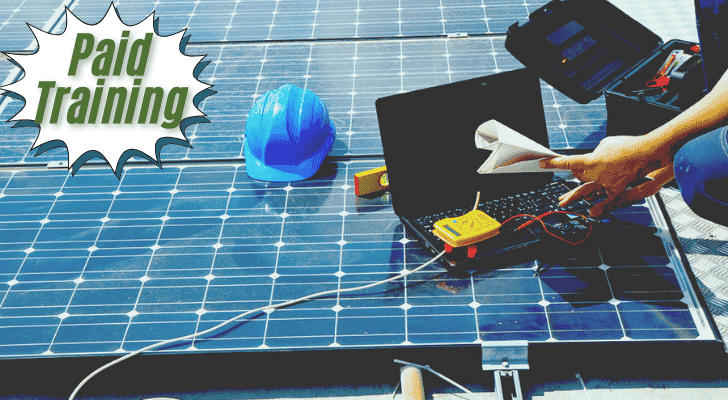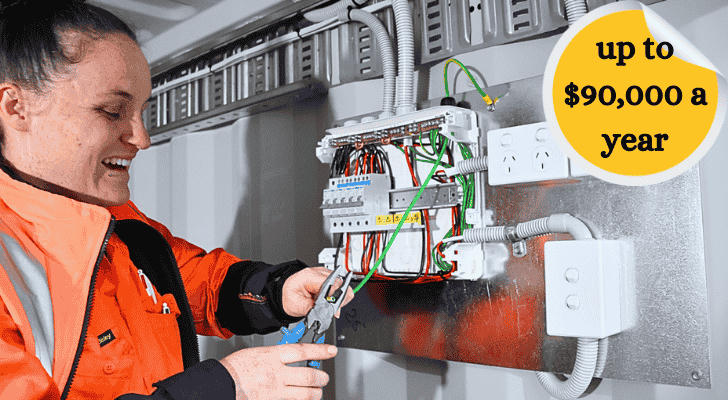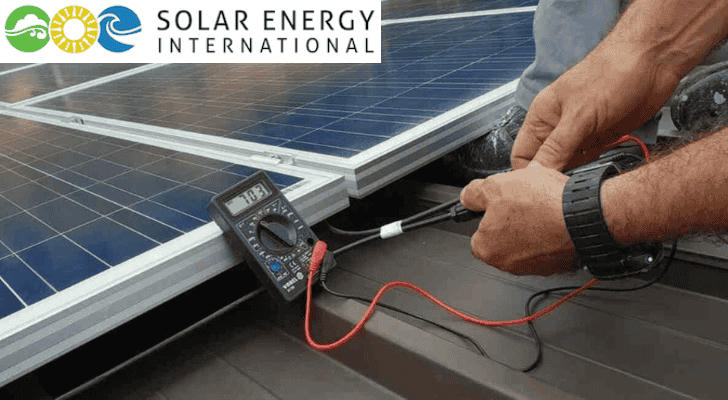Paid Solar Electrician Training Programs in 2025
Enter the high-paying solar energy industry easily in 2025, no advanced degree required! Government-supported paid training programs for solar electricians offer a low barrier to entry, allowing you to start learning and earning $15-$30 per hour in as little as 12 weeks. With a projected 9% job growth in this field by 2034, you'll have the opportunity to earn an annual salary of $45,000-$90,000 upon graduation. Low threshold, high reward—take action now and launch your green energy career!

Government-Supported Training: Learn While You Earn
Several government-supported programs in 2025 focus on solar electrician training, allowing participants to earn an income while learning. For example:
| Program | Duration | Earnings During Training | Location |
|---|---|---|---|
| Solar Ready Vets Program | 12–16 weeks | $15–$25 per hour | Nationwide |
| IBEW Electrical Training Alliance | 4–5 years (apprenticeship) | $20–$30 per hour | Various states |
| NYSERDA Clean Energy Workforce Program | 6 months | Varies by project | New York |
These programs not only reduce financial strain on trainees but also provide direct industry exposure through partnerships with major solar companies.
Diverse Options for Different Age Groups 👥
One of the standout features of solar electrician training programs is that they cater to various age groups:
- Young professionals (18–25 years old): Many programs integrate with technical schools, offering structured apprenticeships with clear career paths.
- Career changers (25–45 years old): Individuals transitioning from other industries (e.g., construction, HVAC) can join accelerated training programs.
- Older workers (45+ years old): Organizations like Solar Energy International provide flexible online and in-person training, ensuring that age is not a barrier to entry.
What Skills Will You Gain? 🎓
Participants in solar electrician training programs develop both technical and soft skills essential for success in the renewable energy industry.
| Category | Skills Learned |
|---|---|
| Technical Skills | Solar panel installation, wiring, system troubleshooting, electrical safety, battery storage integration |
| Soft Skills | Problem-solving, teamwork, project management, customer interaction |
According to a 2024 report from the U.S. Bureau of Labor Statistics, demand for electricians specializing in renewable energy is projected to grow by 9% from 2024 to 2034, highlighting the long-term career viability of these skills.

The Benefits of Completing Training ✅
After completing a solar electrician training program, graduates can expect significant advantages:
- High Employability: Solar electricians are in demand, with job openings projected to reach 20,000+ per year by 2026 (U.S. Department of Energy).
- Competitive Salaries: Entry-level wages range from $45,000–$60,000 annually, with experienced electricians earning over $90,000.
- Career Growth: Opportunities to advance into roles such as solar project manager or system designer.
- Environmental Impact: Contributing to the clean energy transition.
- **Get a certificate:**After completing the training courses you have attended, you will have the opportunity to receive NABCEP Certifications. With a NABCEP Board Certification attached to your name, you can work in the renewable energy industry anywhere around the globe.
Success Story: From Warehouse Worker to Solar Electrician 🌟
💡 Case Study: Alex Martinez, 32
Alex worked in a warehouse for 10 years, struggling with low wages and job instability. In 2023, he enrolled in the Solar Ready Vets Program. Within four months, he gained hands-on experience and secured a job at a solar installation company. Today, he earns $75,000 annually and is training to become a master electrician.
"This program changed my life. I went from an unstable job to a fulfilling career with great pay." – Alex Martinez
How to Apply 📌
Most programs have straightforward application processes:
Step-by-Step Guide to Enrolling in a Paid Solar Electrician Program
1️⃣ Find a Program: Check resources like NABCEP for accredited training programs.
2️⃣ Check Eligibility: Requirements may include a high school diploma and basic math skills.
3️⃣ Submit an Application: Many programs accept online applications with minimal paperwork.
4️⃣ Prepare for Interviews: Some programs require a basic assessment or interview.
5️⃣ Secure Supporting (if needed): Look for grants, apprenticeships, or employer-supported training.
Conclusion: A Bright Future in Solar Energy 🌞

🚀 The 2025 landscape for paid solar electrician training is promising, with government support, nonprofit support, and growing job demand making it a prime career choice. Whether you're a young professional, a career changer, or an older worker looking for stability, these programs offer a structured pathway to financial success and job security. By taking advantage of these opportunities, you can play a role in shaping a sustainable energy future while building a rewarding career.
